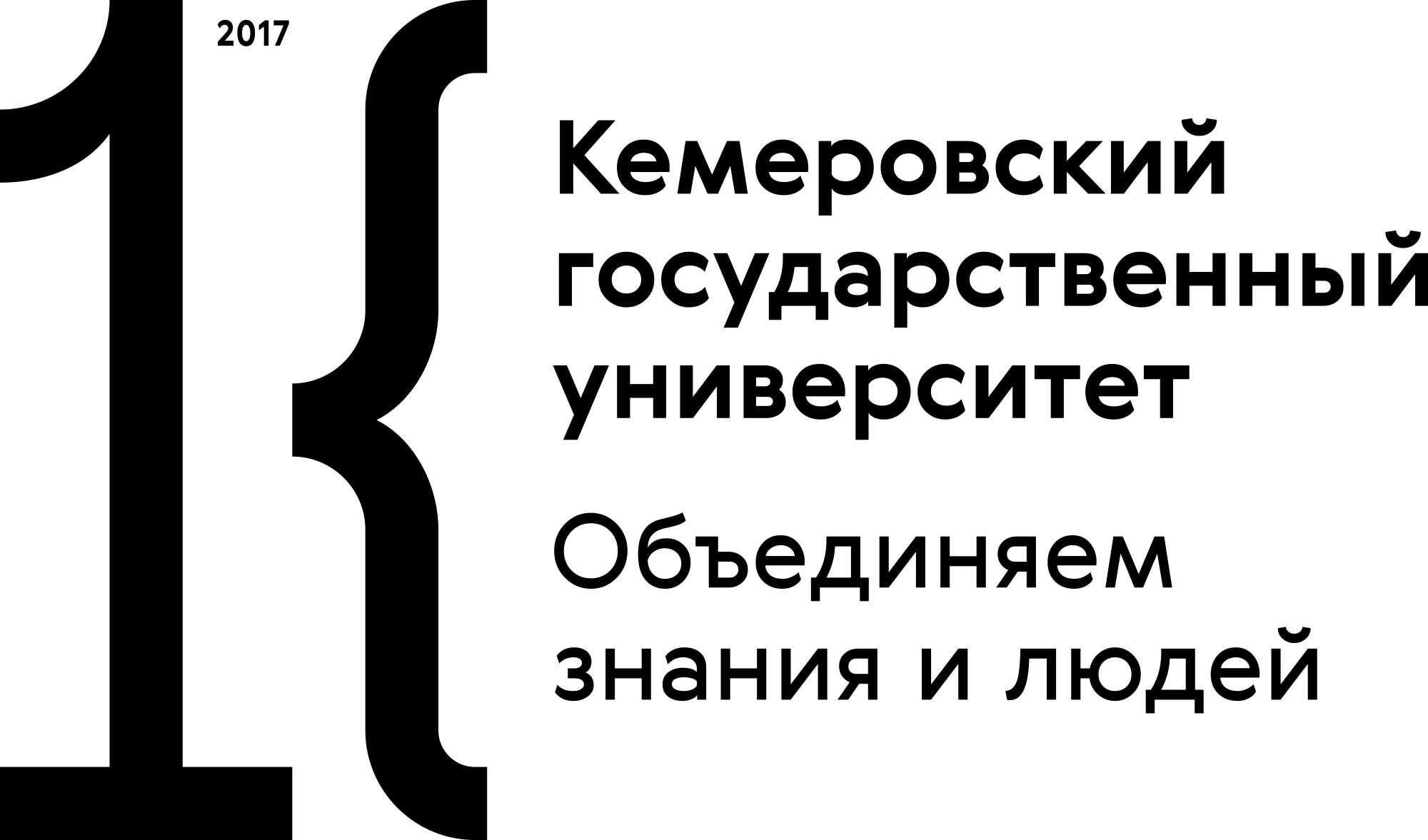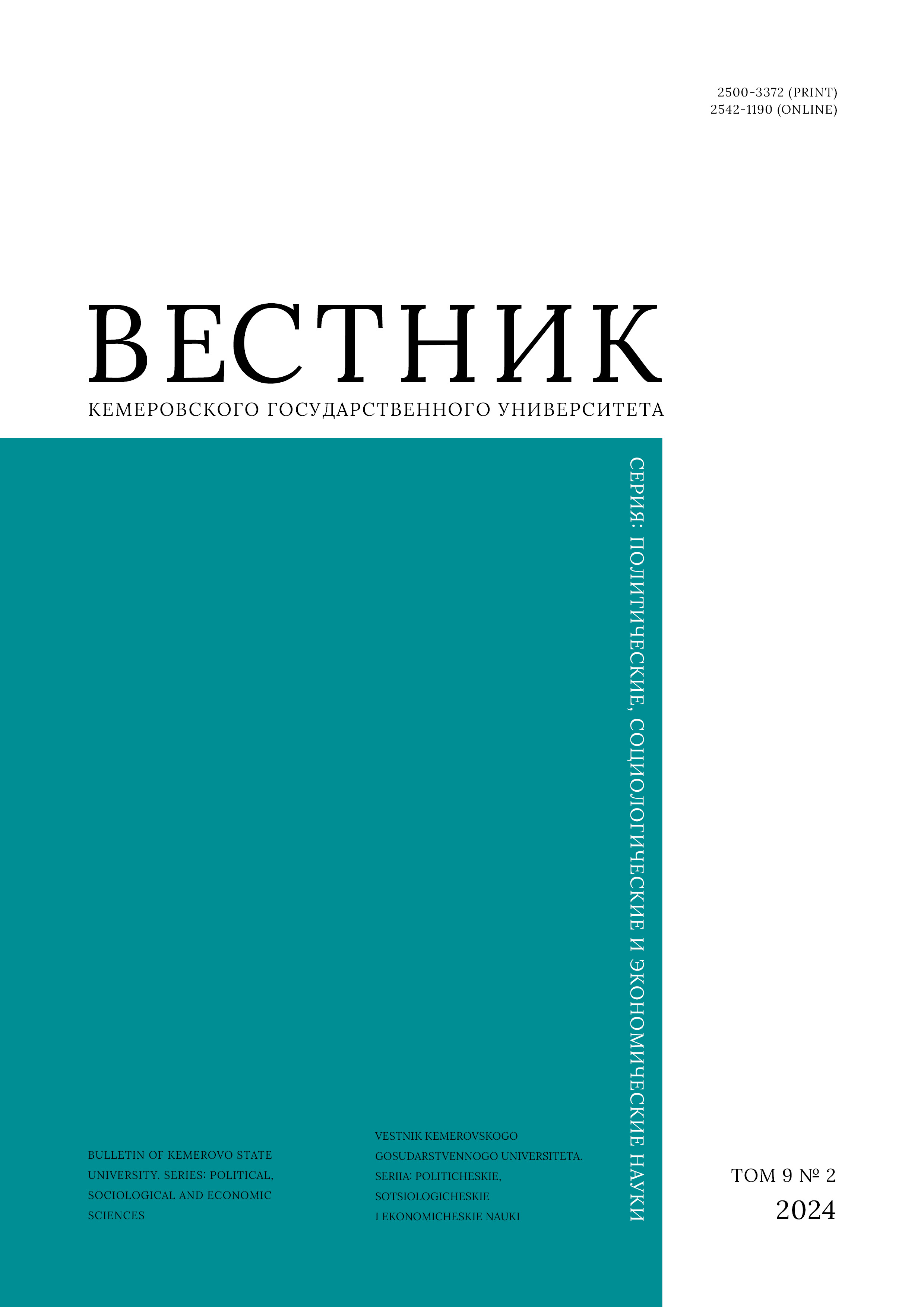Novokuznetsk, Russian Federation
The development of the youth professional orientation mental concept is considered in the context of solving the socio-economic and legal relations problem under a shortage of labor resources and meta-subject competencies, which reflects the cognitive, value and worldview, as well as behavioral bifurcation of human civilization. Mentality is a complex existential, anthropological and phenomenological concept, a unique result of purposeful action of the social environment internalization and a prerequisite for its transformation. It forms under an axiological split in the society and is determined by intrapersonal, socio-economic, cultural, and historical factors. The mental concept construction is based on the idea of smoothing out the value and worldview contradictions, possibly transforming the institutions that seek to change the norms in the public consciousness in the direction of negotiability, increasing the level of trust, which reduces enterprises activities’ transaction costs. The methodological basis of the implemented concept is made up of the anthropological and convergent approaches’ provisions.
mental concept, professional orientation, youth, mentality, anthropological approach, convergent approach, acmeological basis
1. Pyankova L. A. Interdisciplinary analysis of the scientific category of professional identity. Vestnik Kemerovskogo gosudarstvennogo universiteta. Seriia: Politicheskie, sotsiologicheskie i ekonomicheskie nauki, 2022, 7(1): 75–88. (In Russ.) https://doi.org/10.21603/2500-3372-2022-7-1-75-88
2. Tikhonova V. L. Annales school representatives’ understanding of culture. Aktualnye problemy gumanitarnykh i estestvennykh nauk, 2011, (3): 187–189. (In Russ.) https://www.elibrary.ru/nycaih
3. Gurevich A. Ia. Mentality as a layer of social integrity (response to opponents). Disputes about the big question: Discussions about the present and future of historical science around the French school of "Annales", ed. Bessmertnyi Iu. L. Moscow, 1993, 49–50. (In Russ.)
4. Weber M. Selected works. Moscow: Progress, 1990, 808. (In Russ.)
5. Sorokin P. A. Human. Civilization. Society. Moscow: Politizdat, 1992, 543. (In Russ.)
6. Freud S. Group Psychology and the Analysis of the Ego. St. Petersburg: Azbuka-Attikus, 2013, 192. (In Russ.)
7. Fromm E. The Sane Society. Moscow: AST, 2005, 400. (In Russ.)
8. Jung C. G. Archetype and symbol. Moscow: Renessans, 1991, 288. (In Russ.)
9. Alikhanova V. L. Psychoanalytic concept of the identity phenomenon. The Times of Sience, 2018, (1): 3–12. (In Russ.)
10. Fromm E. Escape from freedom. Man for himself. Moscow: AST, 2004, 571. (In Russ.)
11. Korneeva T. S. Mentality as a socio-cultural phenomenon (philosophical analysis). Cand. Phil. Sci. Diss. Abstr. Omsk, 2005, 12. (In Russ.) https://www.elibrary.ru/zmydwx
12. Durkheim E. Sociology and theory of knowledge. History of Psychology Reader, eds. Galperin P. Ia., Zhdan A. N. Moscow: MSU, 1980, 203–224. (In Russ.)
13. Mouss M. Societies. Exchange. Personality. Moscow: KDU, 2011, 416. (In Russ.) https://www.elibrary.ru/qomuyn
14. Toffler A. The third wave. Moscow: AST, 2009, 795. (In Russ.) https://elibrary.ru/qokocn
15. Vygotskiy L. S. Development of higher mental functions: Unpublished works. Moscow: Akademiia pedagogicheskikh nauk RSFSR, 1960, 500. (In Russ.)
16. Laszlo E. Macroshift: Navigating the Transformation to a Sustainable World. Moscow: Taideks Ko, 2004, 207. (In Russ.)
17. Zubok J. A., Chuprov V. I., Lubutov A. S., Sorokin O. V. Life positions in self-regulation of life activity of the youth. Vestnik instituta sotsiologii, 2021, 12(3): 79–98. (In Russ.) https://doi.org/10.19181/vis.2021.12.3.738
18. Gegel L. A. An interpretation of sociocultural foundations of youth’s subjectivity. Gorizonty gumanitarnogo znaniia, 2020, (1): 21–35. (In Russ.) https://doi.org/10.17805/ggz.2020.1.2
19. Kravtsova A. V., Mironova Y. G. Priorities of youth in the labor market. Vestnik magistratury, 2016, (3-2): 11–12. (In Russ.) https://elibrary.ru/tqaftq
20. Vlasenko L. V. Professional orientations of youth of northeast district of Moscow (experience of the sociological analysis). Vestnik MGSU, 2011, (6): 560–566. (In Russ.) https://elibrary.ru/owftbx
21. Shogoreva E. Yu. Internal prerequisites for understanding professional activity as a way of self-realization. Psychological problems of the meaning of life and acme: XXVI Intern. Symposium, Moscow, 13–14 Apr 2021. Moscow: PI RAE, 168–171. (In Russ.) https://www.elibrary.ru/plfwwj
22. Lepekhin V. A. Anthropological approach to the study of the essential characteristics of Russian civilization problem. Cand. Philos. Sci. Diss. Moscow, 2015, 193. (In Russ.) https://elibrary.ru/wjjotl
23. Ostapenko S. M. Cultural and educational environment in the era of civilizational transitions. Vek Globalizatsii, 2020, (4): 112–126. (In Russ.) https://www.elibrary.ru/ojdvsd
24. Romanova E. S., Makshantseva L. V. Anthropological aspects in psychological research on vocational guidance. MCU Journal of Pedagogy and Psychology, 2012, (3): 49–50. (In Russ.) https://www.elibrary.ru/oiyroi
25. Shevelev A. A. Institutional analysis in the epoch of the fourth industrial revolution: Formation of the convergence methodology (Russia, St. Petersburg). Problems of Modern Economics, 2017, (2): 40–43. (In Russ.) https://www.elibrary.ru/zmyywr
26. Schmidt J. C. NBIC – Interdisciplinary? A framework for a critical reflection on inter- and transdisciplinary of NBIC-scenario. Georgia Institute of Technology Working Paper, 2007, (26): 1–15.
27. Arshinov V. I., Budanov V. G. Paradigm of complexity and socio-humanitarian projections of convergent technologies. Voprosy filosofii, 2016, (1): 59–70. (In Russ.) https://www.elibrary.ru/vsasit
28. Baksanskii O. E. Convergence of knowledge, technology and society: Beyond convergent technologies. Philosophy & Culture, 2014, (7): 1061–1068. (In Russ.) https://www.elibrary.ru/sjmkih
29. Baksanskii O. E. World view of the future: Convergence as a fundamental principle. Pedagogy and education, 2014, (3): 17–29. (In Russ.) https://doi.org/10.7256/2306-434X.2014.3.13521
30. Kovalchuk M. V., Naraikin O. S., Yatsishina E. B. Convergence of science and technology – a new stage of scientific and technological development. Voprosy filosofii, 2013, (3): 3–11. (In Russ.) https://www.elibrary.ru/pyklut

















